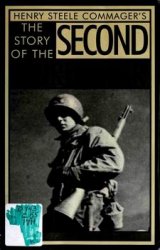That heightened perception ofthreat can be traced to the analysis, accepted by virtually all senior Kennedy administration planners, that the United States
Now found itself on the defensive - not only in relationship to the inflated number of ICBMs that they mistakenly thought the Soviets possessed, but throughout the Third World. A steady stream of troubling international developments fed that view. In January 1961, to the disquiet of Kennedy and his top advisers, Khrushchev boldly vowed to support wars of national liberation across the developing world. The success of the Fidel Castro-led revolution in Cuba, the subsequent establishment of close ties between Moscow and Havana, the raging Communist-directed insurgencies against US-supported governments in Laos and South Vietnam, the postcolonial turmoil and resultant anti-Western upsurge in the Congo - all seemed to lend credence to the rambunctious Khrushchev’s boasts that international trends were moving in a decidedly pro-Communist direction. To make matters even worse, leading foreign-policy analysts within the administration viewed China as a veritable outlaw state that was becoming an increasingly hostile and militant enemy. As the Sino-Soviet split deepened, American policymakers feared that Chinese policy might actually become even bolder and more aggressive, especially in Asia. They worried, relatedly, that the intense ideological competition with their Chinese rivals might in turn encourage the Soviets to become more adventuresome in the developing world.
Kennedy, who as a senator had championed anticolonial nationalism while blasting the Eisenhower-Dulles approach to the Third World, was determined to reverse those worrisome trends. He tried to do so, from the outset of his presidency, by pursuing a more tolerant, tactful, supportive, and generous policy toward key non-aligned countries such as India, Indonesia, Egypt, and Ghana. Kennedy believed such an approach essential in order to undo the damage caused by his predecessors’ overemphasis on military alliances and hostility to neutralism. "We cannot permit all those who call themselves neutral to join the Communist bloc," Kennedy lectured the NSC. If we "lose" the neutrals, "the balance of power could swing against us."421 The president and his senior foreign-policy advisers saw generous economic aid, tailored to the specific needs of individual national aspirations and development programs, as the most effective tool available to the United States in its bid to win favor with the non-aligned nations.
He feared as well that the balance ofglobal power could shift away from the United States if it were not more attuned to the underlying socioeconomic
Conditions that fueled Communism’s appeal across the Third World. In the wake of the Cuban revolution, that peril seemed particularly acute in Latin America; indeed, Kennedy tagged Latin America "the most dangerous area in the world."422 The Alliance for Progress, the administration’s boldest and most ambitious Third World program, sought to use economic largesse to spur modernization, alleviate poverty, and address pressing educational and health needs. For all the idealistic rhetoric that surrounded its launch, the alliance was designed for the overriding purpose of undercutting the appeal of Communism within the hemisphere. The Peace Corps program, perhaps the most idealistic and most popular of Kennedy’s global initiatives, served similar goals. Kennedy believed that young, idealistic Peace Corps volunteers serving selflessly in many of the world’s least-developed countries would help counter the negative image of Americans being propounded by the nation’s enemies. It, too, sprang from a wider strategic vision that emphasized the need to wage the Cold War in the Third World with greater imagination and effectiveness.
Defeating revolutionary insurgencies formed another cornerstone of that plan. The president worried that wars of national liberation, from Southeast Asia to Latin America to various points in between, were being inspired and led by radical nationalists, or Communists, allied with Moscow, Beijing, or both. In order to defeat the insurgencies, Kennedy pushed hard for the development of sophisticated, counterinsurgency techniques. Counterinsurgency became a virtual obsession for Kennedy; he took great pride in elevating Special Forces units, including the much ballyhooed Green Berets, to a prominent place within an expanded American tool box for combating the Viet Cong, the Pathet Lao, and other popular guerrilla movements. In fact, General Maxwell Taylor, Kennedy’s top uniformed military adviser, identified Indochina as a "laboratory" for the employment of counterinsurgency tactics.423 Kennedy fully concurred. Indeed, his decision, late in 1961, to commit rising numbers of US combat advisers to the war against Viet Cong guerrillas in South Vietnam proved one of the most significant, and fateful, of his presidency.
The implementation of these new Third World initiatives rarely proceeded as smoothly or as efficaciously as administration strategists hoped. The embrace of, and actual tilt toward, certain non-aligned states brought the predictable cry from Third World allies of the United States that the benefits
Of formal alliance with the superpower were rapidly eroding. Unwilling to embitter allies and disrupt alliances, which a wholesale policy shift might have entailed, Kennedy backtracked; he recognized that the United States simply could not tilt too far toward the non-aligned without paying a steep cost elsewhere in the Third World. The Alliance for Progress, for its part, never lived up to Kennedy’s high hopes. Funding limitations, the durability of the prevailing social structure, the sheer magnitude of the modernization project, and the inability of external capital to spur growth rates higher than a dismal i percent per annum during Kennedy’s tenure combined to doom the touted alliance. Nor did counterinsurgency efforts provide the magic bullet craved for the fight against popular guerrilla movements in Indochina and elsewhere. By the final months of his presidency, Kennedy faced a rapidly deteriorating situation in South Vietnam in particular, despite the infusion of over 16,000 military personnel.




 World History
World History









